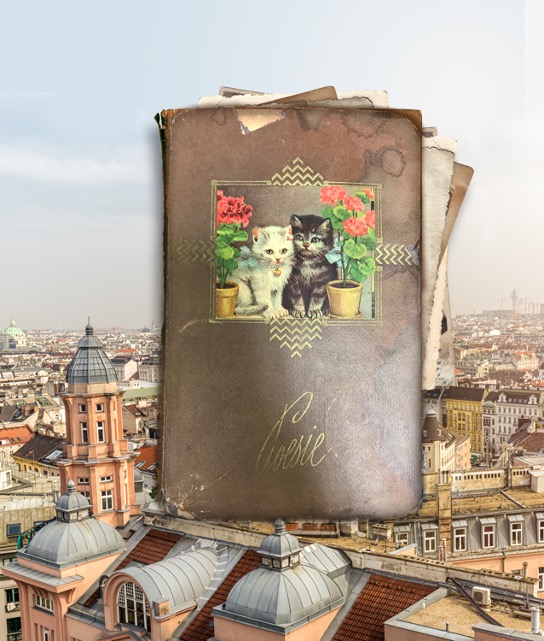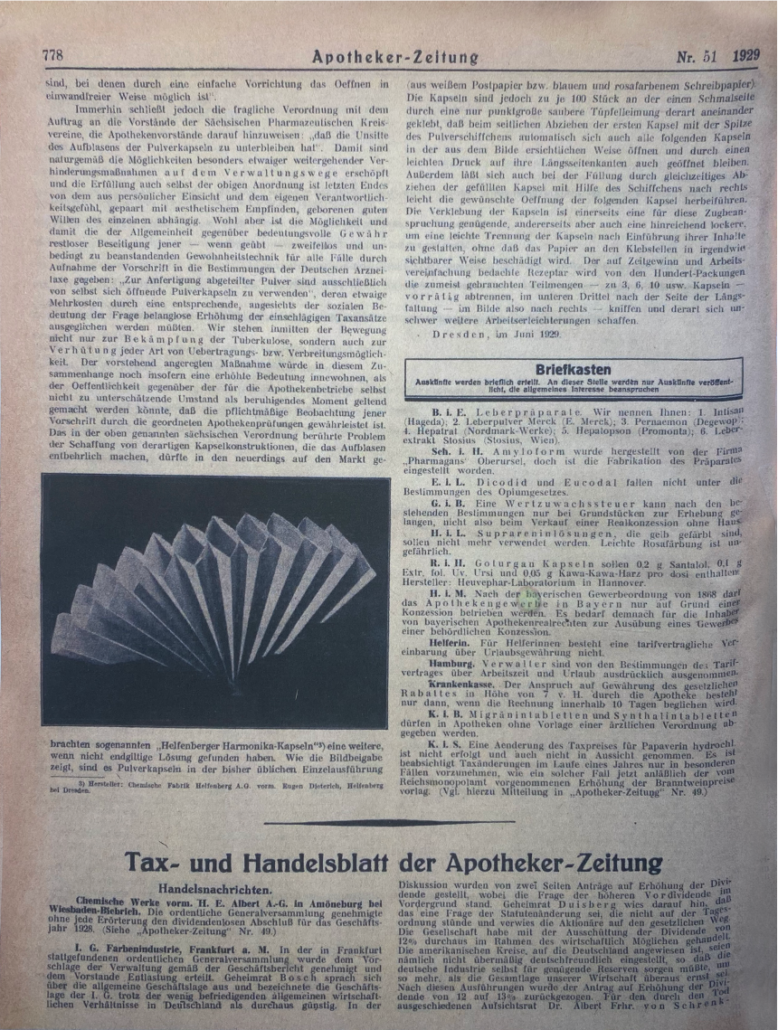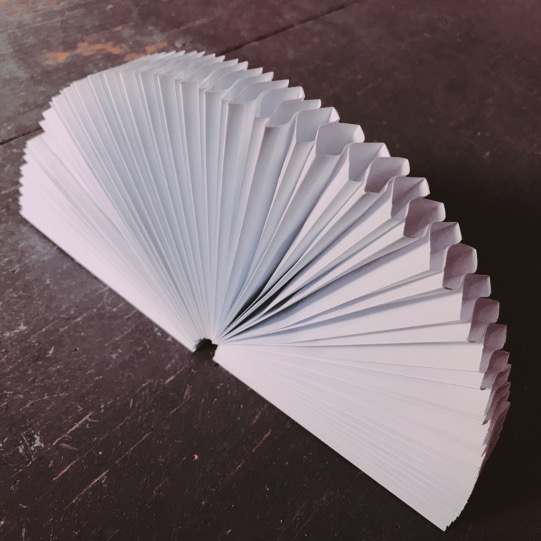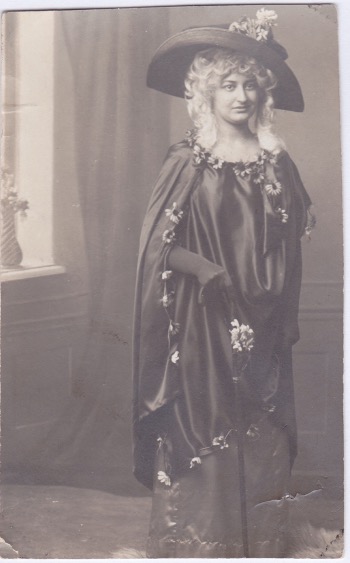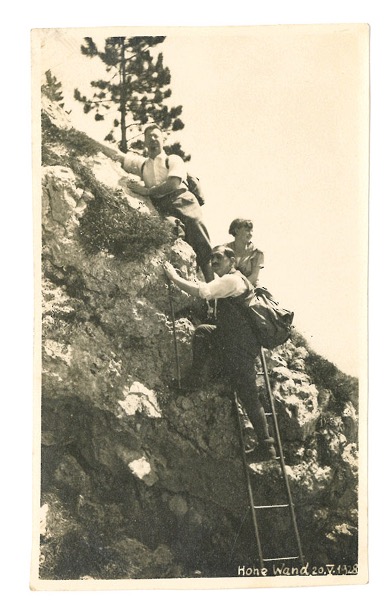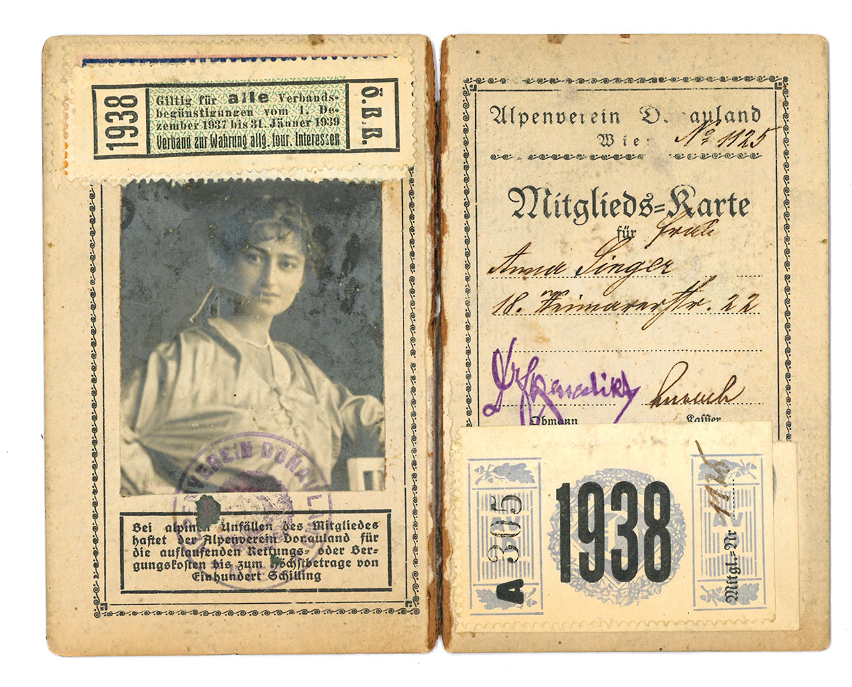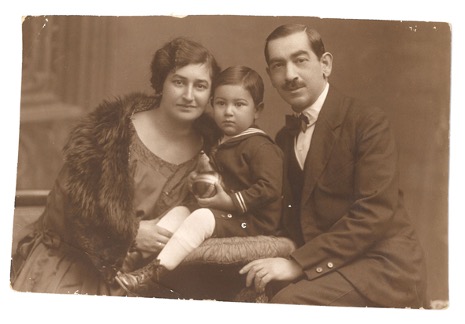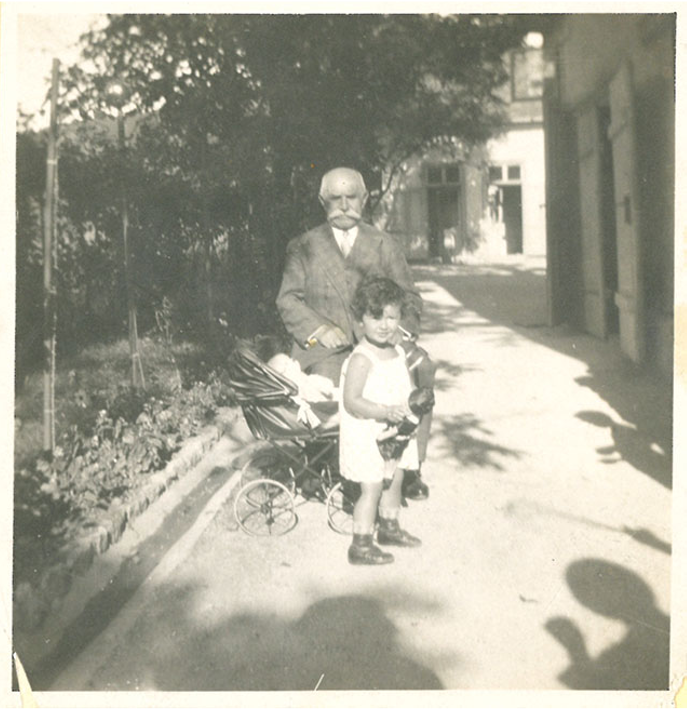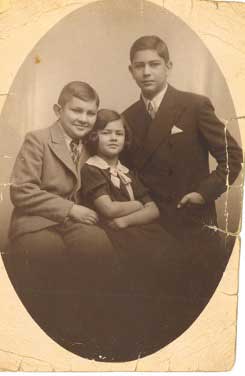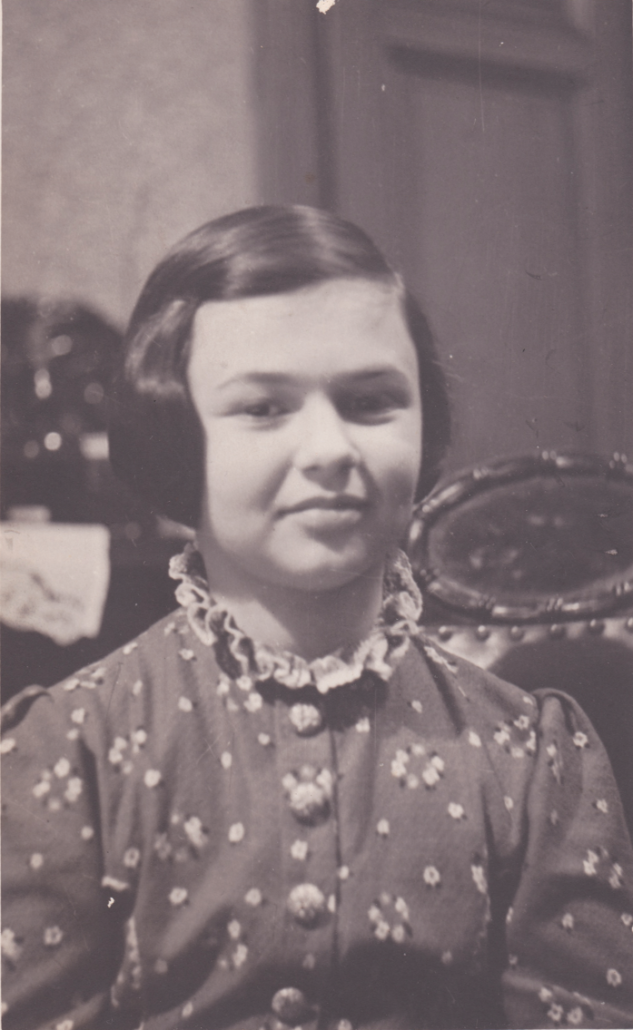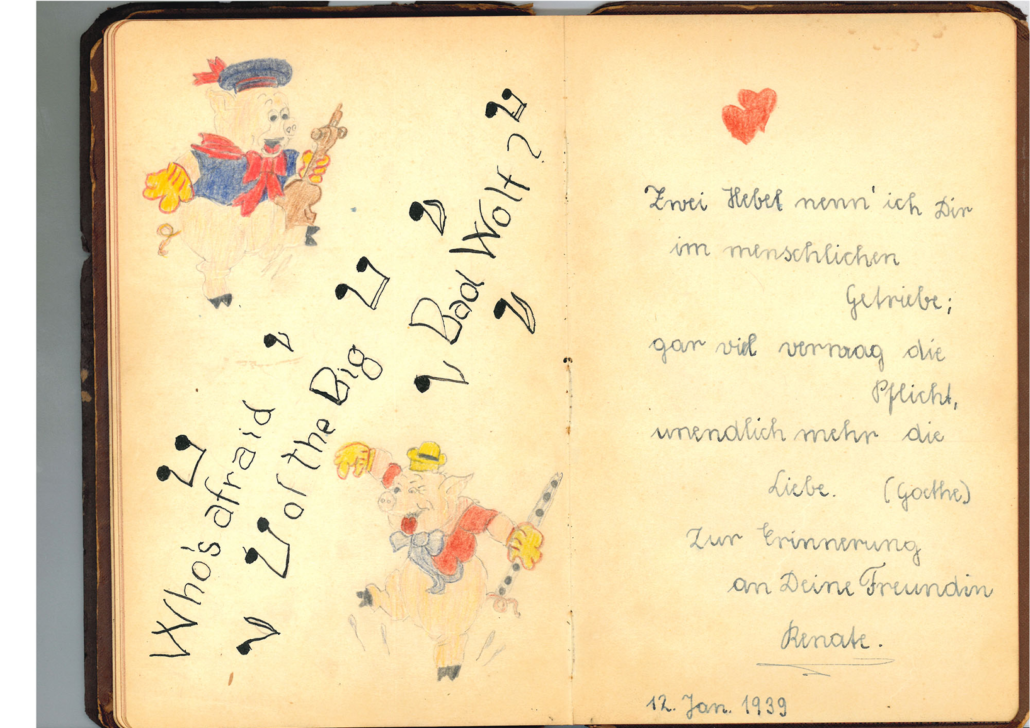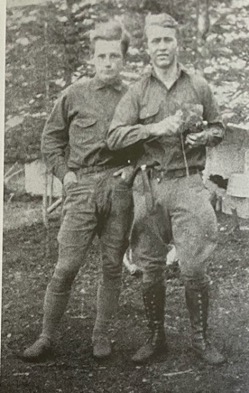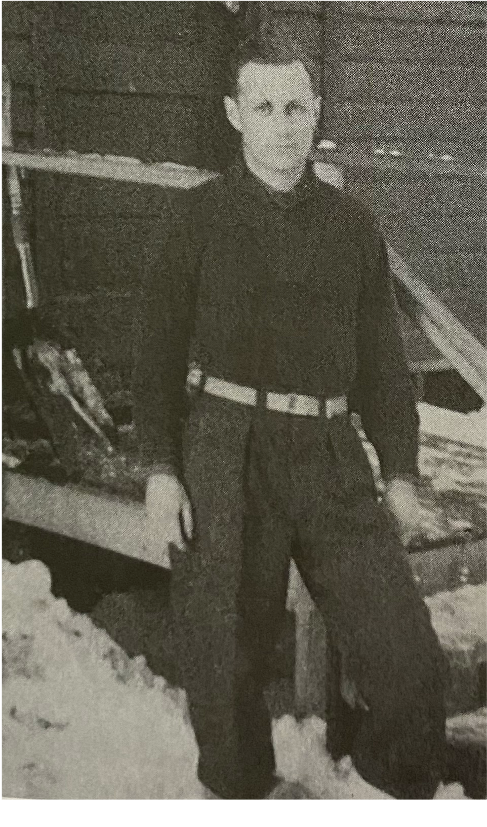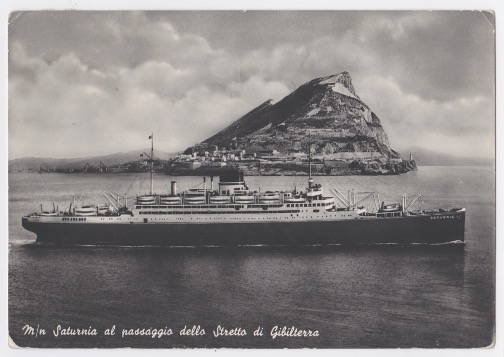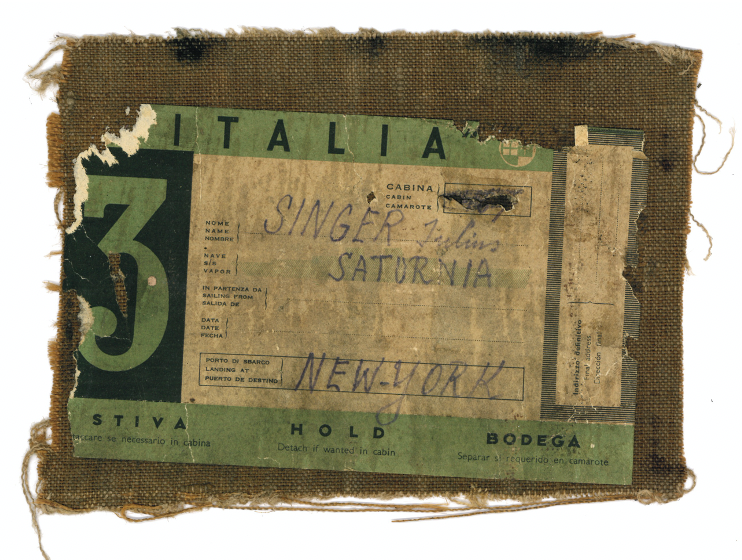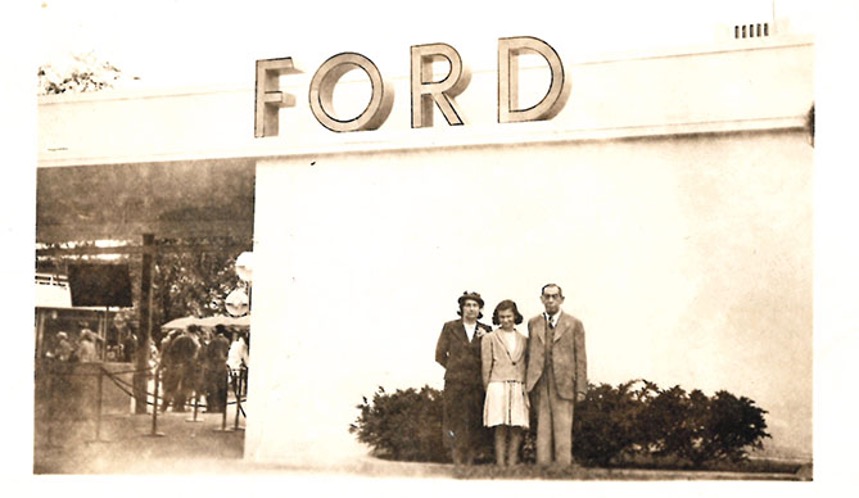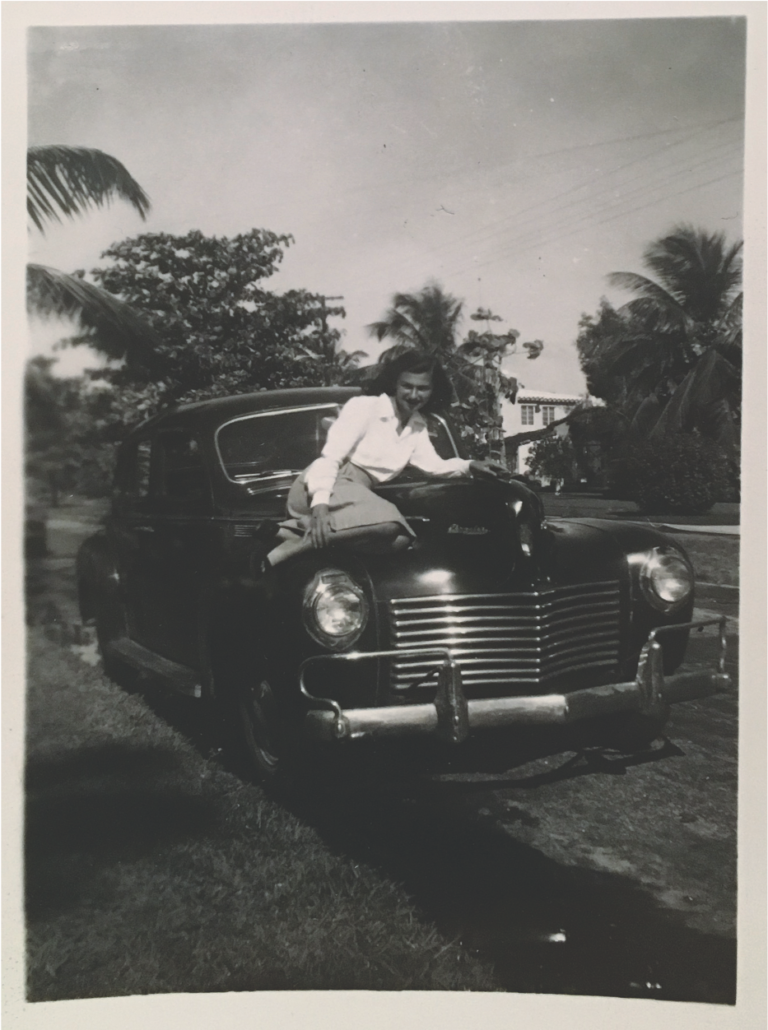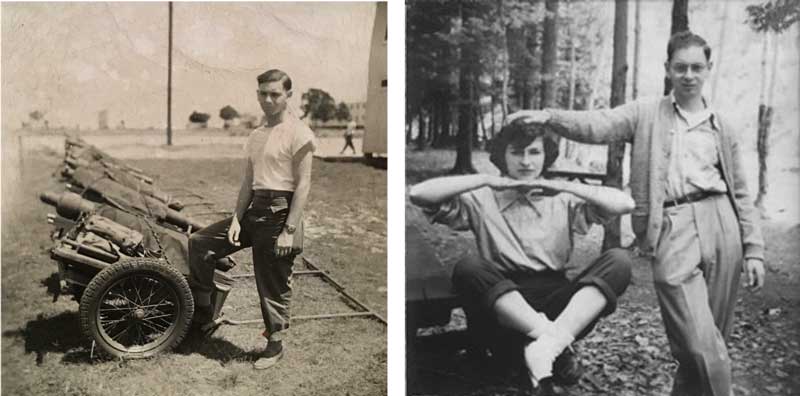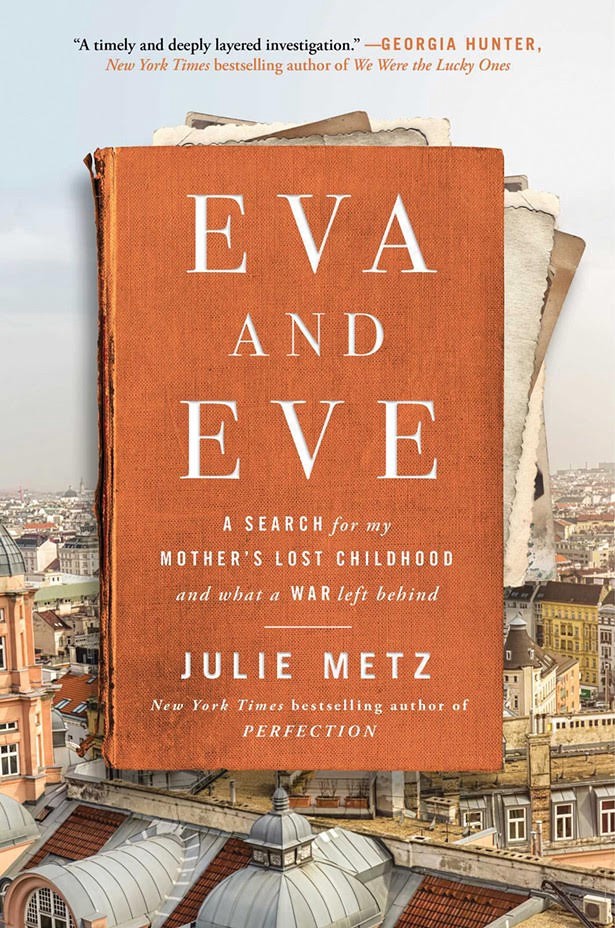Below is content from the presentation that I use for public speaking events.
After my mother Eve died, I found her Poesiealbum, a keepsake book, in the back of a drawer. There are archives full of these books, often the only personal item a child could bring from home.
After my mother Eve died, I found her Poesiealbum, a keepsake book, in the back of a drawer. There are archives full of these books, often the only personal item a child could bring from home.
In this book my mother was called Eva. The book felt like a challenge, as if she’d left me clues to follow.
My grandparents Julius Singer (born 1875) and Anna Nichtern (born 1892) grew up in Vienna. My grandfather fought in the First World War.
Julius joined Adolf Eisenmann & Sohn, a company that produced paper goods for the pharmaceutical industry. Left: an invoice from November 1930, showing the residential building where my mother’s family lived and an exaggerated version of the factory located in the rear courtyard. Note the use of imperial seals, still in use years after the end of World War I.
The company produced soap wrappers and bags, and this “paper fan” made of individually folded and glued sheets of paper. Powdered medicine was inserted into each pouch.
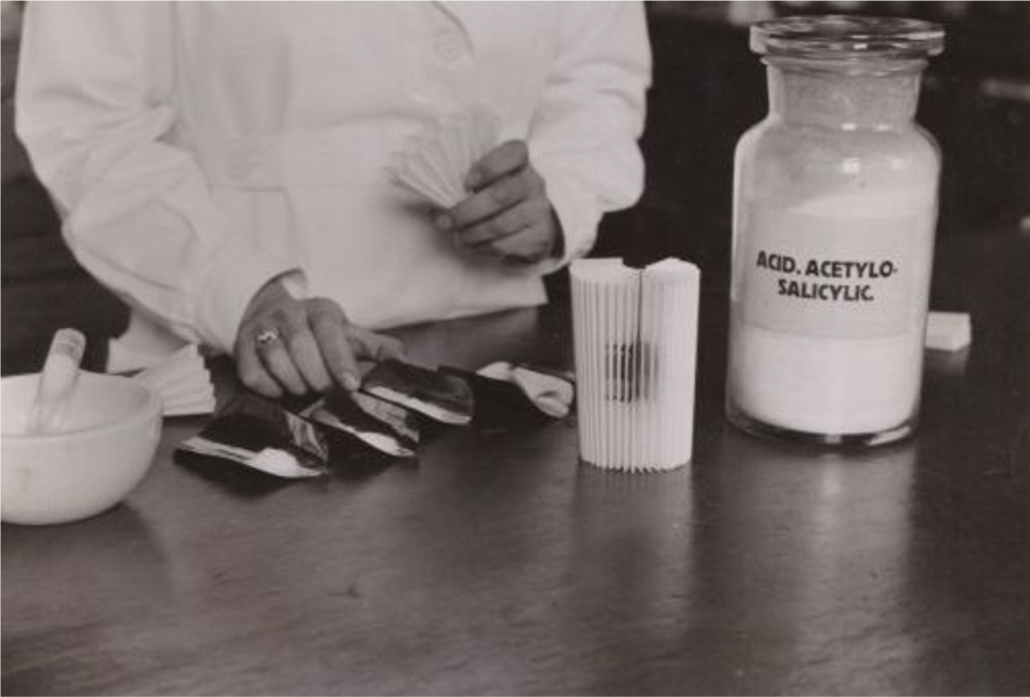
A pharmacist used a ball syringe to puff open each pouch and then inserted the powdered dose using a small scoop. Even after pills were developed, this item was still in common use.
My mother told us that this paper fan, or pulverkapseln, saved her father from deportation. After the Germans seized his business in 1938, they still needed his expertise to operate and maintain the machine that fabricated the pulverkapseln.
My grandparents married around 1920. Their first child Fritz was born in 1921, followed by Dolfi and my mother Eva in 1928
In January 1938, a family member took this portrait of Eva.
No one could have imagined what would happen in Austria just two months later when the Hitler and his German Nazi troops marched into Vienna. The Anschluss, or “union” of German-speaking people that began on March 11, 1938, dissolved the independent country of Austria.
The lives of Vienna’s Jews changed overnight. They were no longer citizens with civil liberties. The only solution was to leave the country, but the bureaucracy implemented by Adolf Eichmann made emigration difficult, degrading, and costly.
A spread from Eva’s Poesiealbum, her keepsake book, from January 12, 1939.
By this time the Anschluss had upended their lives. They had lost their passports, citizenship, business, and savings.
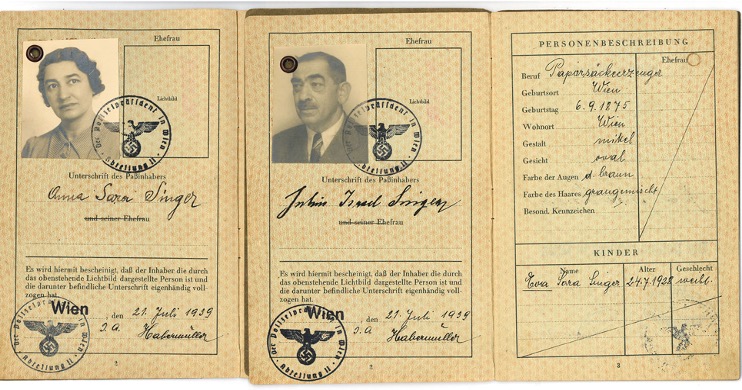
In July, 1939, Julius and Anna were able to secure German passports.
It would be another seven months before they could secure visas to the United States.
Donald Winchester Brown, a young Vice Consul at the American Consulate in Vienna, issued life-saving visas for my grandparents and their daughter Eva.
This allowed the family to leave for Italy in late March 1940. From there they traveled
to New York by ship.
Brown was the son of a wealthy family in New York City. He helped a number of Jewish families leave Vienna in a time of crisis, and he was also an avid mountain climber, which may have made a difference for my family.
On April 4, 1940, Eva and her parents sailed from Trieste on the ship Saturnia.
Above: Saturnia passing through the Strait of Gibraltar.
Saturnia arriving in New York City.
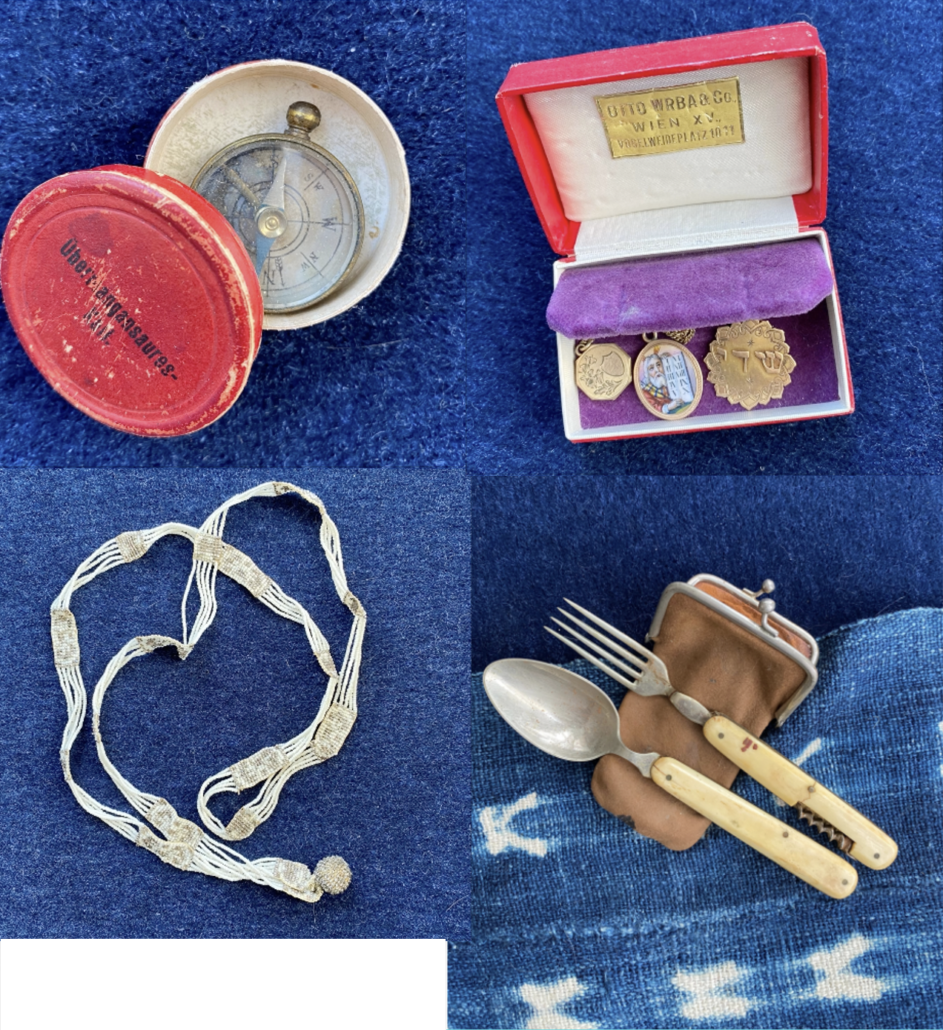
The Singer family left home with two trunks. Julius packed his camping utensils and a compass. Anna hid several pieces of jewelry wrapped in linens, the family menorah and Elijah’s Passover Cup. She also packed up the family photo album. Eva brought her Poesiealblum.
My mother and her parents, new immigrants, at the Ford Pavilion at the World’s Fair in New York City in late summer or early autumn of 1940.
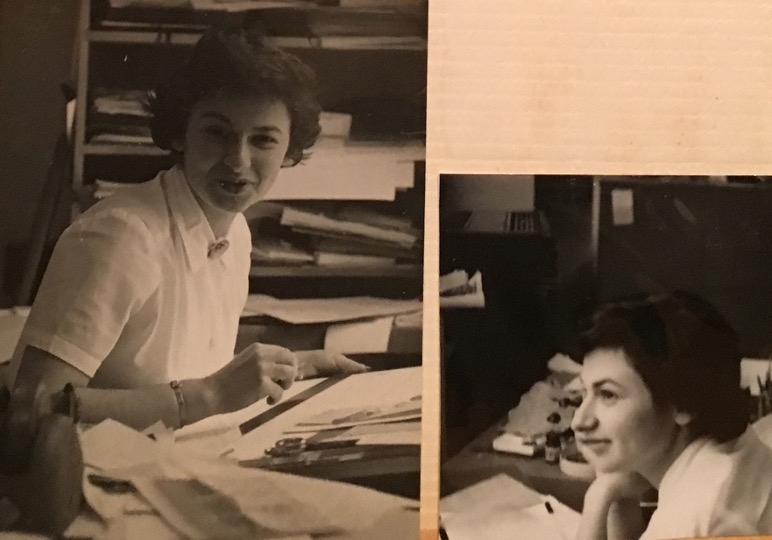
Full circle: Eve at Simon & Schuster (here, during the 1960s), where she worked for over three decades as designer, then art director for trade book interiors.
For more information about Eva and Eve, including upcoming author events, and past interviews please visit and connect at: juliemetz.com
Follow on Instagram @juliemetzwriter
and on Facebook.
Atria publicity: Falon Kirby
falon.kirby@simonandschuster.com
